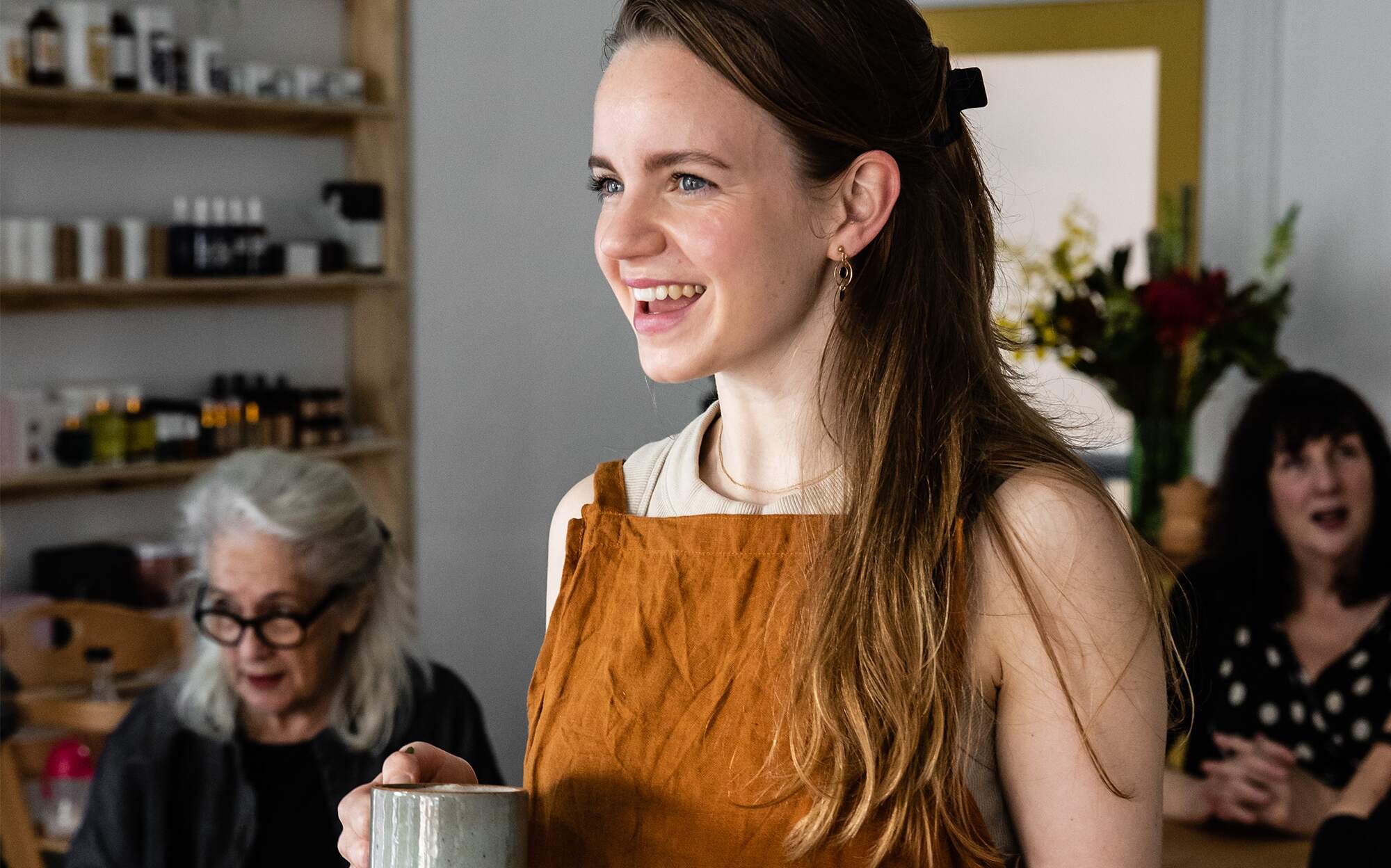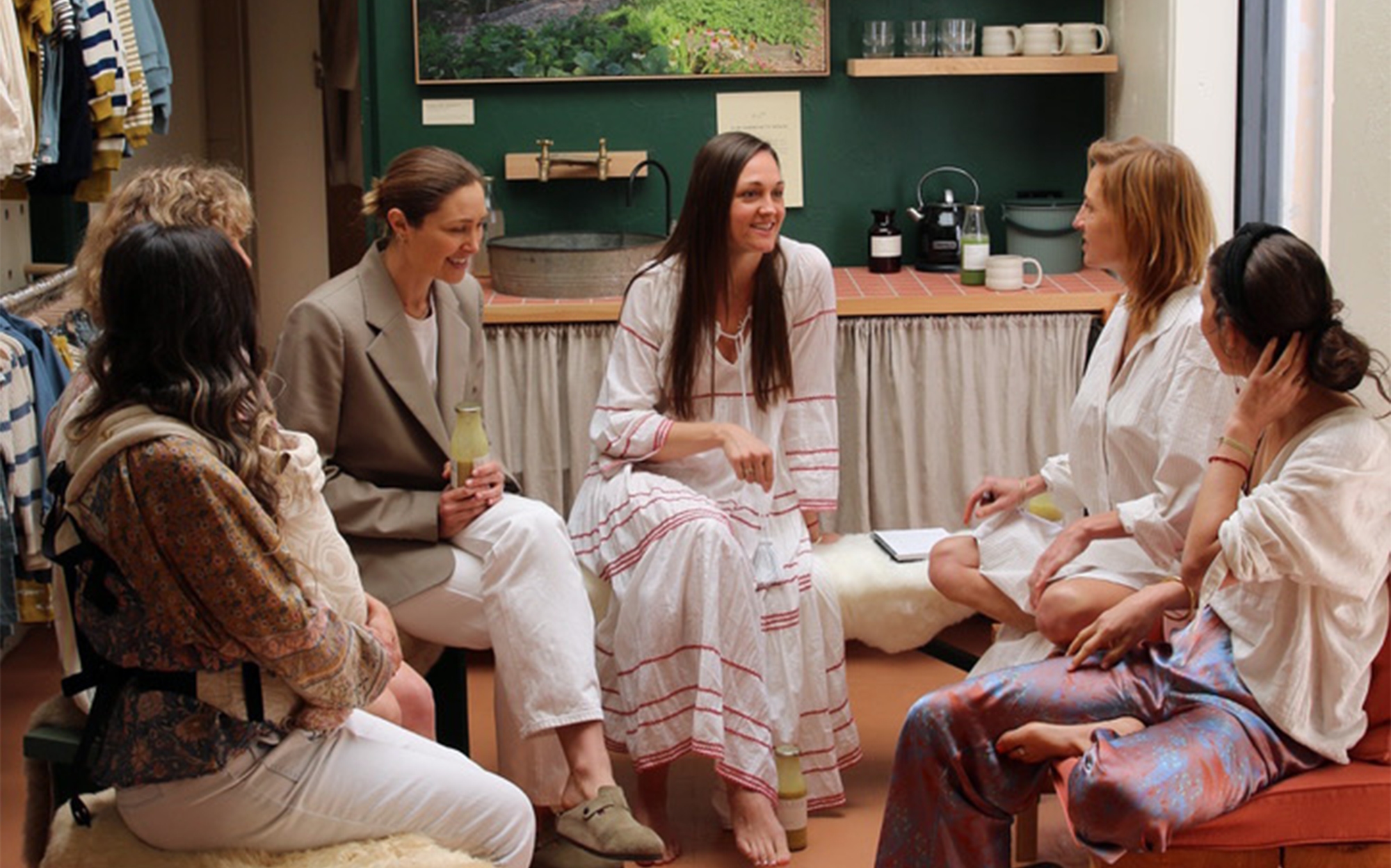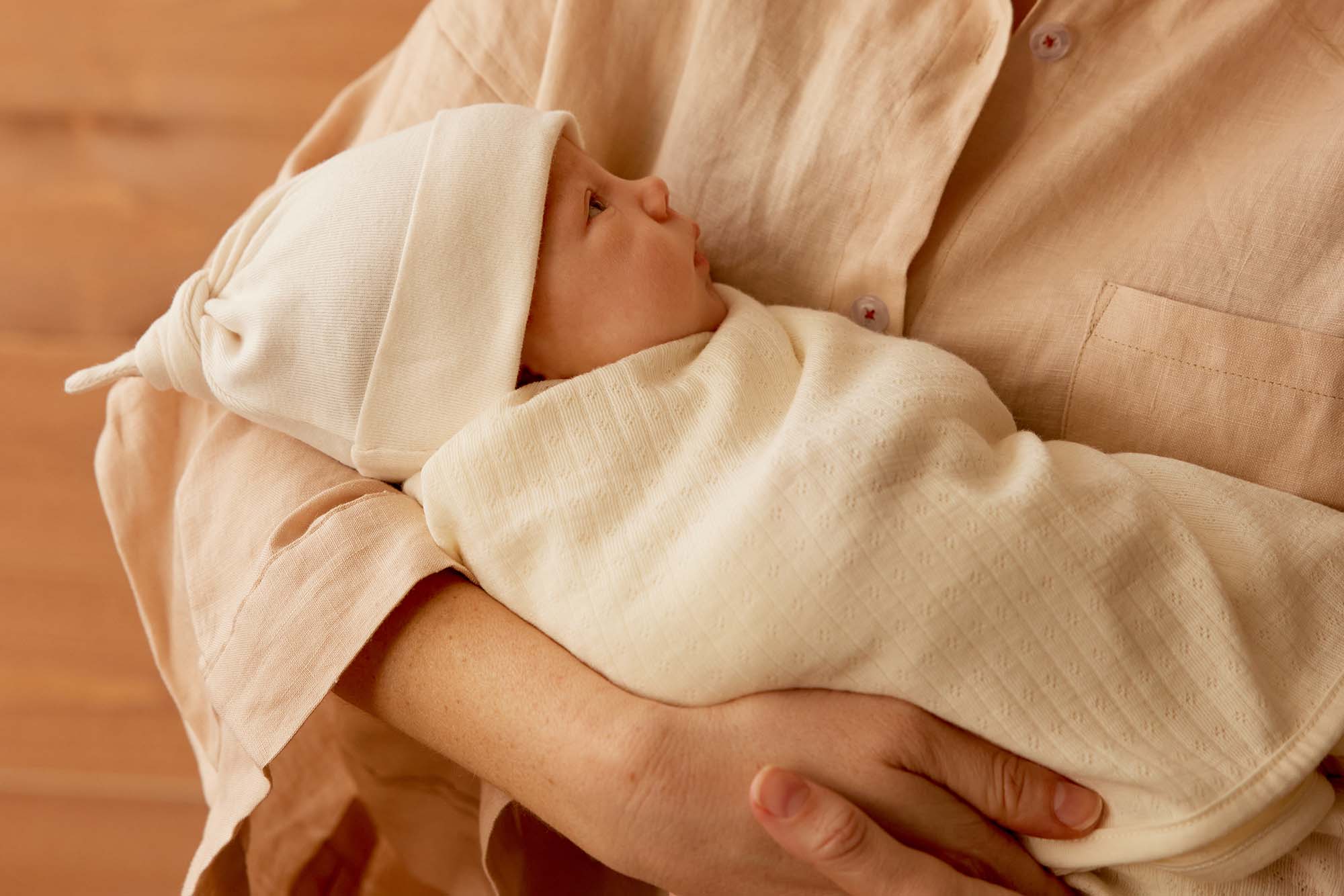
The first 1,000 Days with Kate Levins
We recently chatted with Kate Levins owner of Nourishing Club at our community space in Paddington, as a part of our First 1,000 Days Series. We asked Kate some questions about nutrition during this period and how women can best be supported during this time.


What are the ‘First 1,000 Days’ and why is this window so important to help forge a healthier future for both baby and mum
The first 1000 days refer to the start of a child’s life; beginning at conception and continuing until two years of age. The amount of growth and development that occurs during this time period is crucial, as the ability of a child to develop, learn, and thrive is significantly impacted by how the Mother and baby are fed and cared for during this time. The foundations for long-term health are set during this time, too; it informs gut health, forms the blueprint of the immune system and impacts brain development. The first 1000 days represent rapid growth and offer a powerful opportunity to positively impact future generations!
How is nutrition an integral part of the First 1,000 Days and what advice can you give from your experience in this time period?
Nutrients have the power to positively influence the outcome of the first 1000 days. For children, it’s a life growth stage where energy needs and nutrient intake need to be the largest, despite the relative size of a baby in utero, as a newborn, infant and toddler. Nutrition is so important during this life stage as negative birth outcomes are linked to poor nutrition during conception and pregnancy, and during infancy.
Nutrients that are really important during pregnancy include:
Folate and Choline – help to prevent neural tube defects. Folate can be found in leafy greens, whole grains, nuts and seeds, eggs, poultry, meat and seafood. Choline can be found in eggs, liver, beef, fish, beans and peas.
Vitamin D – supports brain development and the development of the immune system. Deficiency in vitamin D is associated with a higher incidence of allergies/intolerances, with low birth weight and risk of gestational diabetes, pre eclampsia and bacterial vaginosis. Vitamin D can be found in oily fish like salmon, mackerel and sardines, liver, egg yolks, dairy products and mushrooms if you leave them out in the sun.
Zinc – improves efficiency of contractions and assists with wound healing during postpartum. Zinc can be found in beef, liver, pumpkin seeds, oysters, legumes and nuts. Iron – I believe this is built on the foundation of knowledge. Planning, reading, learning and preparing for birth and beyond is crucial and there are so many wonderful things to learn! Confidence is also key, as I think it’s so important that the Mother feels confident to voice her wishes, preferences and needs. Read books, listen to podcasts, lean on health professionals, talk to your Mum and other Mothers you know, ask your midwives and doctors all the burning questions, go along to birthing and breastfeeding classes, and listen to what your gut is telling you. Ask for what you need and know will support you, say yes to the offers of family members and friends, and advocate for yourself in all situations. Iron can be found in red meat, legumes, whole grains, liver, dried fruits like figs and apricots, and iron-fortified cereals and milks.
Magnesium – regulates blood pressure, reduces the risk of preeclampsia, and has been shown to positively influence healthy birth weight. Magnesium is an incredibly calming mineral and is widely known for its positive impact on sleep and regulating the nervous system. Magnesium can be found in leafy greens, whole grains, legumes, dark chocolate, nuts and seeds and soy products.
They say that postpartum mirrors menopause, so a slow, restful and nutrient-rich postpartum will benefit you for years to come. Nutrients and warm, nourishing foods help to accelerate healing, soothe the soul, and are much easier to digest, too.
During postpartum, it’s important to focus on foods that are high in protein; eggs, meat, poultry, legumes, nuts, seeds and whole grains. Protein-rich foods will help to accelerate recovery and provide long-lasting energy. Healthy fats are so important too; they are anti-inflammatory, support postpartum recovery, provide energy, are really satiating and help the body to absorb more nutrients from the food we consume. Food sources include; oily fish, eggs, avocado, olive oil, nuts, seeds, olives, coconut and full-fat unsweetened dairy products.
How can new mothers best support themselves through such a life-changing journey?
I believe this is built on the foundation of knowledge. Planning, reading, learning and preparing for birth and beyond is crucial and there are so many wonderful things to learn! Confidence is also key, as I think it’s so important that the Mother feels confident to voice her wishes, preferences and needs.
Read books, listen to podcasts, lean on health professionals, talk to your Mum and other Mothers you know, ask your midwives and doctors all the burning questions, go along to birthing and breastfeeding classes, and listen to what your gut is telling you. Ask for what you need and know will support you, say yes to the offers of family members and friends, and advocate for yourself in all situations.


How can partners, family and close friends better support the new mother?
Ask her how she is and what she needs, offer your time and not your opinion, bring nourishing food, hot coffee, be kind and be gentle.
Partners should also feel implored to educate themselves on pregnancy, birth and beyond. They too should be reading books, listening to podcasts, talking to their wider community and be ready to support their partner and care for their baby in all ways (except breastfeeding, though we wish they could do this too!) Birthing classes with your partner really help them to discover practical ways of supporting you; the birthing Mother and advocating for your needs during pregnancy, birth and postpartum.
How can we as a wider community better support new parents through this time period?
By cooking them a meal when their baby is born, doing their washing, vacuuming their floor, bringing them a hot coffee, playing with their older children so they only have to focus on the newborn baby. While baby clothes and toys are cute and necessary, they are not everything. I think it should be just as common to bring a warm meal or snack alongside a baby gift!
What was the most challenging thing you experienced as a new mother?
My baby was born during the pandemic, so the hardest part of her arrival was the fact that we couldn’t have our families around us. Some of our closet family members didn’t meet our daughter Ada until she was three months old. It felt hard at the time, but in retrospect it was insane!
Aside from that, I think the amount of advice (and conflicting advice at that) has been the hardest thing I have felt as a new Mother. Leaning into my gut feelings, or maternal instinct has served me far better than any sleep consultant’s recommendation, or maternal health nurse’s concern for the weight of my happy and contented baby. Learning to tap into your gut instinct does come with time; I’m still learning to trust myself almost three years into my daughter’s life.
For mothers who are new to learning about the specific nutritional needs in the post-partum period, how would you suggest they begin their journey?
Resources that I love are ones rooted in Traditional Chinese Medicine and Ayurvedic principles. I loved reading the books ‘The First Forty Days’ and ‘Healing Recipes for The Newborn Mother’ by Soma Shakti. I loved delving into the work of postpartum doulas and learning about the practices they use to help support new Mothers. I’d also suggest looking into the work of registered dietician Lily Nichols; she has a fabulous website that’s full of free resources centred around nourishing whole food recipes and she has published three great books, too.
What difference do natural products (supplements/foods/baby foods/skincare etc) make in the First 1,000 Days?
The skin is the body’s largest organ and we absorb over 70% of what we put onto it! Some chemicals in these sorts of products may cross through our bloodstream and into the placenta, so it’s wise to be mindful of what we’re putting into our bodies, and onto our skin. Using natural products that have short ingredient lists with names of ingredients that we understand is kinder to our body, our baby, helps to reduce our overall toxic load and supports the environment. Organic cotton for example, uses less water than its non organic counterpart and is more durable as a bonus. An important thing to note is that natural products actually work! There are some wonderful brands from skincare, to cleaning products, to organic baby wear and nappies. Some that I really love include; Sun Butter for skincare, Koala Eco for cleaning, Nature Baby clothing (of course) and Haleco nappies.





